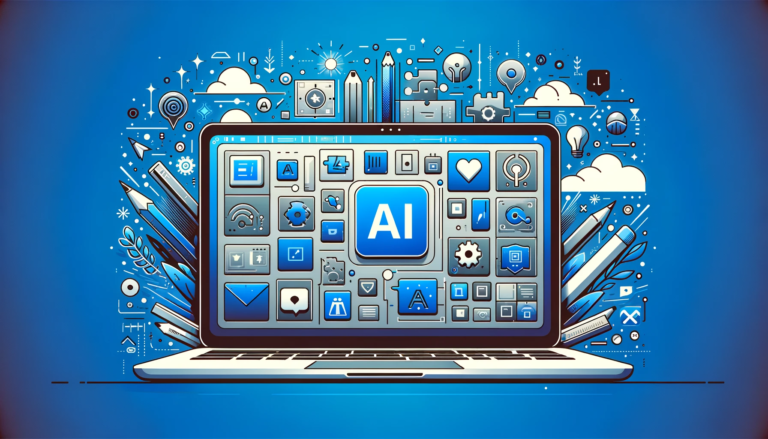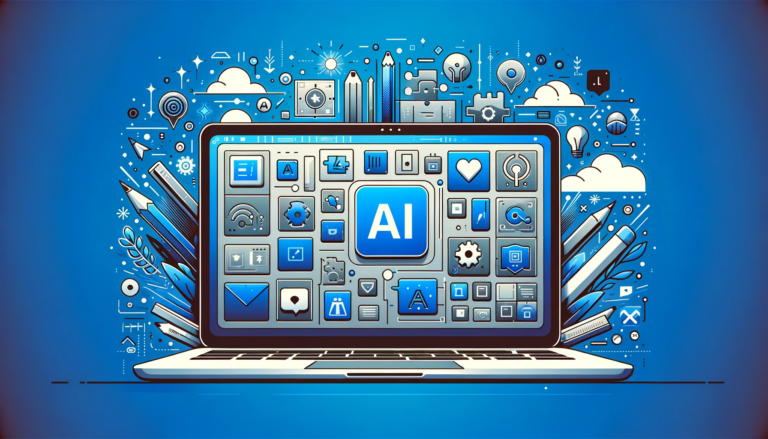Ai Tool for Research Paper: Unleash Academic Potential
An AI tool for research papers streamlines data analysis and literature review. It enhances productivity by automating various research tasks.
Writing research papers can be a daunting task, but advancements in artificial intelligence have introduced tools that assist researchers in navigating vast amounts of academic literature with ease. These AI-powered platforms can simplify the process of finding relevant studies, analyzing data, and even suggesting potential avenues for new research.
By using an AI tool for research papers, scholars can save time and focus on the critical elements of their work, ensuring a more efficient research process. This technology not only improves the quality of academic writing but also accelerates the discovery of innovative insights, propelling the world of research into a new era of efficiency and precision.
The Evolution Of Ai In Academic Research
The Evolution of AI in Academic Research has been nothing short of revolutionary. Artificial Intelligence (AI) stands as a beacon of progress, transforming how researchers approach complex problems. The journey from early conceptual stages to actual implementation has been awe-inspiring, with milestones marking significant advancements. This evolution has led to sophisticated tools that assist with diverse tasks ranging from data analysis to discovering new trends.
From Concept To Reality: Ai’s Journey In Academia
The path of AI in academia began as a distant concept. Yet, dreams turned into concrete plans. Initial ideas about how machines could simulate human intelligence gave rise to dedicated research. Scholars pushed boundaries, exploring AI’s potential for academic enrichment. Now, these ideas are fully integrated into research environments, with AI becoming a fundamental component in a variety of academic disciplines.
Key developments include:
- Natural Language Processing (NLP): This allows AI to read and understand scholarly articles.
- Data Mining Techniques: AI digs through vast amounts of data to identify patterns.
- Machine Learning Algorithms: These help predict future trends based on historical data.
Milestones In Ai Development For Research Assistance
AI tools for research have hit numerous milestones. Each marks a step forward for academic investigation efficiency. AI now routinely assists with literature reviews, hypothesis generation, and experimental design.
| Year | Milestone | Impact |
|---|---|---|
| 1997 | IBM’s Deep Blue defeats Chess World Champion | Highlights AI’s problem-solving skills |
| 2011 | IBM Watson wins Jeopardy! | Demonstrates NLP and information retrieval capabilities |
| 2016 | Google DeepMind’s AlphaGo beats Go Champion | Shows improvement in strategic thought and planning |
| 2021 | AI predicts protein folding structures | Revolutionizes biomedicine and proteomics research |
Each of these milestones not only represents technical sophistication but also a closer union between AI and human expertise. They demonstrate AI’s potential to become indispensable in academic research. Researchers can now conduct more successful experiments, write more accurate papers, and make groundbreaking discoveries with AI’s help. The academic world eagerly anticipates future achievements in AI, knowing they will further reshape the landscape of research.
Key Features Of Ai Research Tools
Research papers demand precision, and with technology ever-evolving, AI tools for research are no exception. These tools boast features that can propel academic research into a new realm of efficiency and depth. Key features of AI research tools revolutionize how researchers analyze data, search literature, and manage references. Let’s delve into these transformative abilities that AI brings to the research table.
Data Analysis Automation
AI tools streamline complex data analysis, making it easier for scholars. They process massive data sets swiftly, spotting patterns that might take humans weeks to see. With AI, repetitive tasks are a thing of the past.
- Speed: AI analyzes data faster than traditional methods.
- Accuracy: Reduces the risk of human error.
- Pattern Recognition: Identifies trends intuitively.
Advanced Literature Search Capabilities
Finding the right studies is vital. AI enhances literature searches with smart algorithms. These tools filter through databases to find the most relevant papers in seconds. Researchers can customize searches to fit their specific requirements.
- Refined search filters for better results.
- Rapid access to an expansive database.
- Customizable searches to meet unique needs.
Enhanced Reference Management
Keeping track of all citations is easier with AI. These tools automatically organize references. They ensure all citations are accurate and up to date, saving researchers valuable time and preventing citation errors.
| Feature | Benefit |
|---|---|
| Automatic organization | References are sorted without effort. |
| Citation accuracy | Improves credibility of research. |
| Time-saving | More time for actual research. |
Case Studies: Transforming Research With Ai
Welcome to our exploration of pioneering case studies where artificial intelligence has significantly altered the research landscape. Discover how AI tools propel groundbreaking strides across various fields, including medical research, social sciences, and climate change studies.
Revolutionizing Medical Research
AI shapes the future of medicine by accelerating diagnostics and personalizing treatment plans. Let’s delve into these transformations:
- Predictive analytics for early disease detection
- Machine learning algorithms improving drug development
- AI-supported imaging for faster, more accurate diagnoses
Success stories include AI identifying cancerous cells with precision and launching virtual health assistants for patient care.
Impact On Social Sciences Methodology
Social sciences experience a methodological revolution as AI tools uncover new insights into human behavior. Key areas include:
| Data Processing | Pattern Recognition | Outcome Prediction |
|---|---|---|
| Sorting vast data sets quickly | Identifying sociological trends | Forecasting economic shifts |
Researchers now analyze complex social patterns and predict behaviors with unprecedented accuracy.
Ai’s Role In Climate Change Studies
Artificial intelligence is a formidable ally in the fight against climate change. AI models simulate and predict environmental impacts, leading to potent strategies.
- High-performance computing for climate modeling
- AI for biodiversity protection through species tracking
- Energy consumption optimization using smart technology
Case studies show AI optimizing renewable energy sources and providing key data for policy development.

Credit: www.amazon.com
Navigating The Ethical Landscape
As artificial intelligence (AI) evolves, AI tools for research papers are transforming how we explore and interpret data. With these advancements come important ethical considerations that researchers must navigate. Let’s delve into the ethical landscape of using AI in research.
Bias And Fairness Concerns
Bias in AI tools can skew research outcomes. AI systems learn from data, which may contain inherent biases. These biases might reflect historical inequalities or current societal issues, leading to unfair conclusions in research papers.
- Investigators must assess AI tools for bias before application.
- Constant monitoring and updating AI algorithms are essential for fairness.
- Ensuring diverse datasets helps minimize bias.
Intellectual Property And Authorship
Defining authorship with AI tools can be challenging. AI contributes significantly to research, raising questions about IP rights and creator recognition.
- Establishing clear usage policies for AI-generated content is key.
- Researchers should acknowledge AI’s role in their work.
- Legal frameworks must evolve to address AI’s intellectual contributions.
Data Privacy And Security Challenges
Data privacy and security are crucial in research. AI tools often require large datasets, which may include sensitive information. Safeguarding this data is paramount.
| Privacy Task | Best Practices |
|---|---|
| Anonymizing Data | Removing personal identifiers before analysis. |
| Secure Storage | Encrypting data on secure servers. |
| Access Control | Limiting data access to authorized personnel. |
Compliance with regulations like GDPR ensures responsible data handling.
Getting Started With Ai Research Tools
Embarking on a journey into the world of research can be daunting, especially when trying to harness the power of Artificial Intelligence (AI). AI research tools can transform your workflow, leading to groundbreaking discoveries and efficiency gains. This guide will help you get started with AI research tools, ensuring that you select the best one for your field, integrate AI smoothly into your workflow, and develop the necessary skills for effective usage.
Choosing The Right Tool For Your Field
Finding the perfect AI tool for your research is crucial. Here’s how you can make the right decision:
- Analyze your research needs – Identify what you need the AI to do.
- Evaluate tool capabilities – Make sure the tool can handle your specific tasks.
- Research user reviews – Look for feedback from others in your field.
- Consider support and updates – Choose a tool that is well-supported and regularly updated.
Integrating Ai Into Existing Research Workflows
Seamless integration of AI into your research processes can save time and reduce errors. Here’s a step-by-step guide:
- Start with a small scale pilot – Test the AI tool on a mini-project first.
- Compare results pre and post AI – Ensure AI is making a positive impact.
- Expand AI use as necessary – Gradually increase the AI’s role in your projects.
- Adjust and optimize your workflow – Refine processes to maximize AI’s benefits.
Training And Skill Development For Effective Use
To truly benefit from AI tools, building proficiency is essential. Here are strategies to boost your skills:
| Strategy | Description |
|---|---|
| Online courses | Sign up for courses that focus on AI in research. |
| Tutorials and Guides | Use the tool’s resources to learn specific functions. |
| Community engagement | Join forums to learn from peers and experts. |
| Practice regularly | Use the AI tool in everyday tasks to build familiarity. |
Remember, like any powerful tool, AI requires patience and practice to master.

Credit: www.mckinsey.com
The Future Of Ai In Academic Publishing
As technology evolves, AI in academic publishing is taking center stage. It’s transforming how research is conducted, papers are reviewed, and trends are forecasted. Let’s explore how AI tools are reshaping the landscape of academic research and publishing.
Predicting Trends With Ai-powered Analytics
Understanding the direction of scientific research is essential. AI-powered analytics make this possible. By analyzing vast amounts of data, AI can detect emerging patterns and predict future trends. This helps researchers stay ahead in their fields.
- Real-time analysis of publication data
- Identification of up-and-coming topics
- Insights into cross-disciplinary influences
Automated Peer Review – Prospects And Pitfalls
Peer review is a cornerstone of quality in academic publishing. With AI automation, this process could become faster and more objective. AI can identify inconsistencies and review large volumes of work quickly. Yet, complete reliance on AI could overlook the nuanced judgement that human experts provide.
| Prospects | Pitfalls |
|---|---|
| Speeds up review process | May miss context and nuanced analysis |
| Reduces human bias | Lacks human intuitive insight |
The Next Frontier: Collaborative Ai-authoring Platforms
Imagine a platform where AI and researchers collaborate. Collaborative AI-authoring platforms are set to revolutionize academic writing. AI contributes by offering data-driven insights, drafting sections, and ensuring citations are accurate. Researchers can focus on the creative and critical thinking aspects.
- Data analysis and suggestion for content direction
- Automated draft creation to assist researchers
- Citation verification for improved accuracy

Credit: www.td.org
Frequently Asked Questions Of Ai Tool For Research Paper
Is There An Ai Tool For Research Papers?
Yes, tools like Iris. ai and Semantic Scholar use AI to assist with research paper exploration and review.
Can We Use Chatgpt To Write Research Paper?
Yes, you can use ChatGPT to write a research paper, but you should critically review and edit the content to ensure accuracy and originality.
Is There A Free Ai Tool To Summarize Research Paper?
Yes, tools like SMMRY and Scholarcy offer free services to summarize research papers. They provide quick overviews that help users grasp key points.
What Is The Best Ai Research Paper Generator?
The best AI research paper generator is subjective, but tools like GPT-3 by OpenAI are popular for their advanced language capabilities and versatility in generating academic content.
Conclusion
Embracing AI tools for research paper creation is transformative. They streamline data analysis, source evaluation, and draft polishing. Such technology allows scholars to elevate their work, ensuring precision and depth. AI is not just an aid; it’s a revolution in academic research.
Embrace the future, empower your studies.







